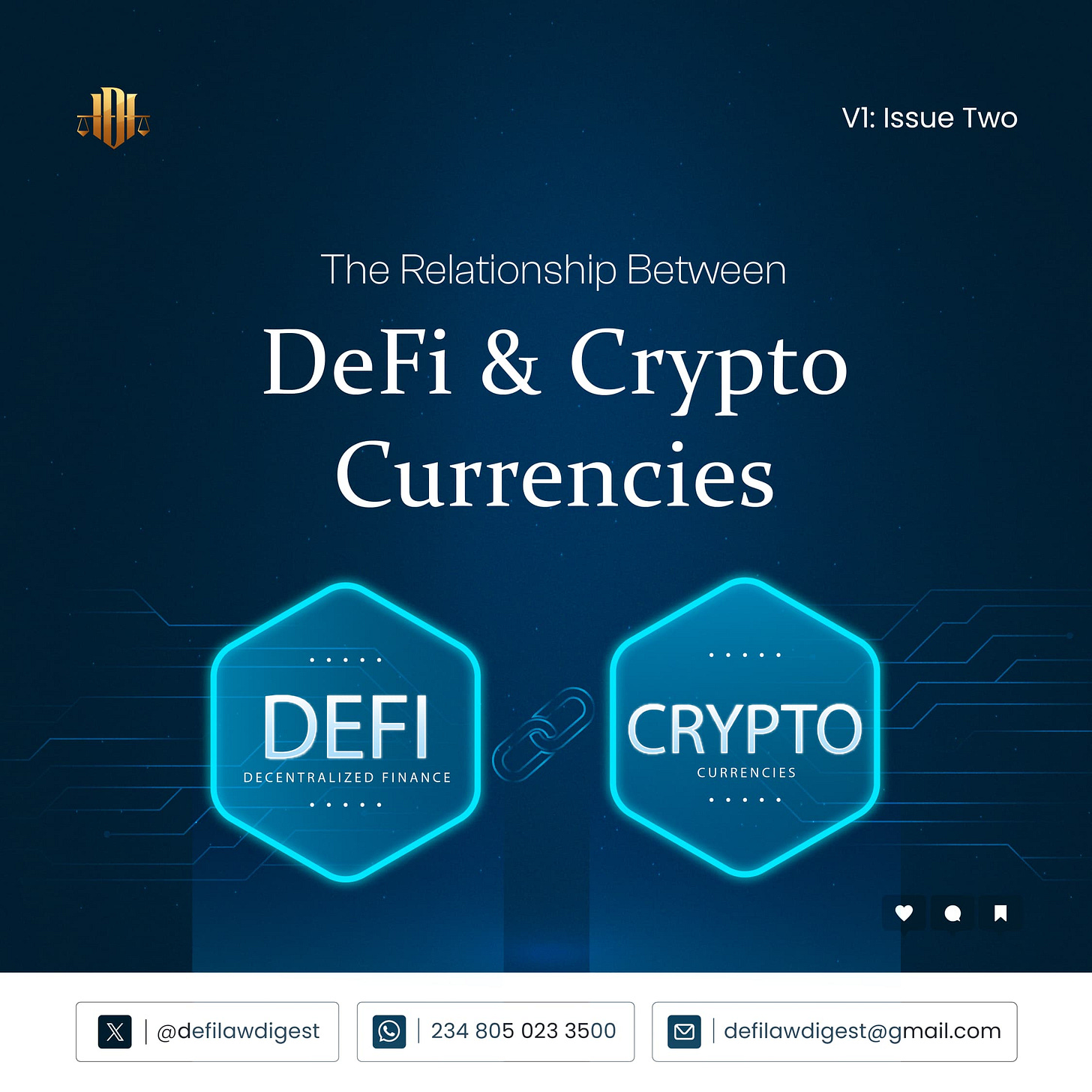
Dear DLD subscriber,
Welcome to our first newsletter issue of the year!⚖️
Today we will introduce you to the relationship between decentralized finance (DeFi) and cryptocurrencies (Crypto).
DeFi and Crypto are often used interchangeably, so much so that many people now think they are synonymous.
However, as you will discover in this issue, they are not the same!
We can first compare their position to the chicken and egg argument:
“Which came first?” »
The foundation of both concepts dates back to Blockchain technology, which has come a long way since the birth of Bitcoin, the most popular crypto, in 2019.
So what is their difference?
A cryptocurrency is a type of digital or virtual currency that uses cryptography (encrypted codes) to securely verify transactions.
It is also decentralized; meaning that its production and circulation are not in the hands of centralized authorities like banks or the government.
Although Bitcoin is officially recognized as the first, several other cryptocurrencies have also emerged, including #Ethereum, #BNB (BSC), #Avalanche, #Arbitrum and #zksync; most of which exist on their own blockchains and some as layer 2 chains on the Ethereum network.
DeFi, on the other hand, encompasses a wide range of financial applications built on blockchain, which offer trading, lending, borrowing and other financial services.
It is an evolving phenomenon that introduces an entirely new infrastructure of financial products and services, independent of centralized institutions, anchored on blockchain and powered by cryptocurrencies.
Although clearly distinct, the two concepts embody a suite of technologies that enable individuals to engage in peer-to-peer financial activities over the Internet.
The convergence of the two is in the sense that cryptocurrencies are the digital assets that facilitate the operation of various DeFi applications, protocols and services operational on blockchains.
Look at it this way.
Crypto is literally the currency of the DeFi economy because it facilitates the financial services offered by DeFi.
This is the “fuel” of DeFi.
𝑃𝑜𝑙𝑖𝑐𝑦 𝐼𝑚𝑝𝑙𝑖𝑐𝑎𝑡𝑖𝑜𝑛𝑠 𝑜𝑓 𝑡ℎ𝑒𝑖𝑟 𝐷𝑖𝑠𝑡𝑖𝑛𝑐𝑡𝑖𝑜𝑛
Although cryptocurrencies may more easily fall within the scope of current regulatory provisions and are already reported as securities, particularly by the United States Securities and Exchange Commission (SEC), as we would discover in With later issues of the DLD, the DeFi ecosystem poses a greater challenge for regulators.
Indeed, the broader concept of DeFi presents its decentralized nature and it will take much more research for regulators to wrap their heads around it.
Additionally, most of the SEC enforcement actions that have been put forward have focused on centralized exchanges.
The architecture of DeFi is much more multidimensional than that of cryptography, so it would require deeper knowledge to develop policies that can address its intricacies.
And it’s over!
We look forward to writing to you again in our next issue.
Please be aware that our issues are for informational purposes only and do NOT constitute financial or legal advice.




